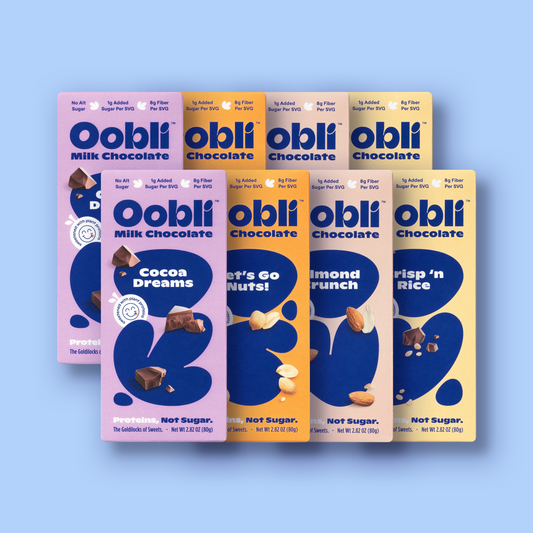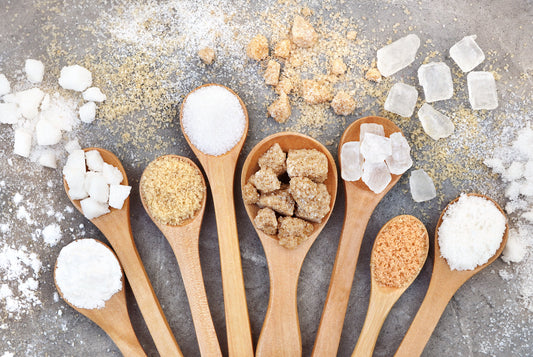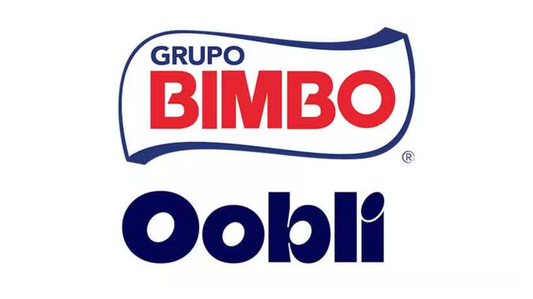For anyone with dietary restrictions, or who’s just conscious of what’s going in their body, navigating food packaging labels and ingredients lists can be a nightmare. You often have to really read the fine print, learn how to avoid buzzwords, and seek help from Google when you don’t understand an ingredient.
One of the most difficult things to navigate is sweeteners. You’ll see “sugar-free,” “sweetened naturally,” and “no artificial sweeteners” splashed across different products, but what do these actually mean?
Let’s take erythritol for example. Is erythritol an artificial sweetener? That’s exactly what we’ll address in this guide. We’ll help you decide whether erythritol is a safe addition to your diet, or an artificial sweetener that should be approached with a healthy dose of caution.
Overview of Erythritol
Erythritol, a polyol or sugar alcohol, is found in certain fruits, mushrooms, and fermented foods. Chemically classified as a sugar alcohol, erythritol is part of the sugar alcohol family, which also includes xylitol, sorbitol, and maltitol.
Despite being categorized as a sugar alcohol, erythritol is virtually calorie-free, which helped it initially rise to fame as an alternative to sugar, AKA an artificial sweetener. However, it’s since risen to fame for all the wrong reasons, as the dangers of erythritol have been flung into the spotlight…
So, what has erythritol in it? Many low-sugar or sugar-free food and drink products are sweetened with erythritol. Diet sodas, sugar-free cookies, and even certain ice cream products use erythritol as a sweetener. But is erythritol an artificial sweetener, or a natural one?
Is Erythritol an Artificial Sweetener?
So, is erythritol an artificial sweetener? Unfortunately, the answer isn’t really black and white - the classification of erythritol blurs the line between natural and artificial sweeteners. Let’s take a closer look.
What is an “Artificial Sweetener”?
Before diving into the classification of erythritol, it's crucial to understand what constitutes an "artificial sweetener." Artificial sweeteners are sugar substitutes that are synthetically produced and are often intensely sweet, allowing for a sweeter taste without the added calories of sugar.
Common examples include sucralose vs aspartame, stevia vs splenda, and saccharin. These sweeteners are engineered to provide a sweet flavor without the metabolic effects associated with traditional sugars.
So, Is Erythritol an Artificial Sweetener?
Ok, but is erythritol an artificial sweetener as well? The classification of erythritol as an artificial sweetener is a topic of debate in the world of nutrition. While erythritol undergoes a process to extract and purify it, it originates from natural sources and is considered a sugar alcohol.
Unlike many artificial sweeteners, erythritol occurs naturally in fruits and is produced through fermentation. The distinction lies in its processing method and origin.
Erythritol is not entirely synthesized in a laboratory like some artificial sweeteners. Instead, it undergoes a fermentation process that transforms natural sugars. This nuance blurs the lines between natural and artificial, sparking discussions about how to categorize erythritol accurately.
What Does This Mean For Consumers?
So how do we interpret this information? While it may not fit the conventional definition of an artificial sweetener, erythritol is often grouped with sugar substitutes due to its low-calorie nature. It (and other sugar substitutes) are often referred to as “non-nutritive sweeteners.”
Just as phrases like “organic” can be difficult to interpret, the same is true for “natural” vs “artificial.” Ultimately, it comes down to your own definition of what’s natural, and what you’re willing to put in your body.
Most people’s takeaway is that erythritol isn’t really 100% natural, but it’s also less artificial than some sweeteners, which are synthesized pretty much from scratch. Perhaps “processed” is the word we need to describe erythritol, but that may complicate things even further!
Erythritol may be less artificial than other sweeteners, but that certainly doesn’t make it safer or healthier. Are erythritol and other sugar alcohol bad for you? It sure looks that way. Researchers found that erythritol may double your risk of a serious cardiovascular event, like a heart attack or stroke.
The Appeal of Natural Sweeteners
Due in part to the health concerns that come with erythritol and other non-nutritive sweeteners, many people have started looking for alternatives. But when it comes to natural sweeteners, what are your options? And are they actually better? Let’s find out.
Rising Demand for Natural Sweetness
Just like other sweeteners, erythritol can cause intolerance to artificial sweeteners symptoms, leading many people to search for sugar free drinks without artificial sweeteners and drinks without aspartame.
Because our body isn’t used to digesting artificial sweeteners (they’re not something we evolved to eat thousands of years ago), they can cause some pretty uncomfortable side effects. In people with intolerances, they cause bloating, gas, discomfort, cramps, and nausea.
These symptoms, along with the other health concerns that come with artificial sweeteners, lead many people to look for natural alternatives. But what are the options?
Exploring Alternatives to Erythritol and Artificial Sweeteners
Of course, the obvious natural choice is sugar itself, but for the health-conscious, sugar isn’t a great option. Its effects on blood sugar levels, its high-calorie count, and its impact on our teeth mean that sugar can bring just as many health concerns as artificial sweeteners, and often more guilt.
Searching for an erythritol substitute that’s natural, safe, and doesn’t come with the high-calorie count of sugar isn’t easy, but at Oobli, we’ve found a solution. It’s all-natural and delivers a powerfully sweet kick without the downsides!
Harness the Power of Sweet Proteins as a Safe Sweetener With Oobli!
At Oobli, we’ve got two little words that will revolutionize the way you enjoy your favorite treats: sweet proteins! These powerhouses are a game-changer when it comes to sweetening food and drinks, and they’re completely natural! Here’s why we’re so obsessed with them.
Why Sweet Proteins Are Our Sweetener of Choice
First of all, what are the benefits of sweet proteins? Not only are sweet proteins natural, they’re also virtually calorie-free. Because they’re as much as 5,000 times sweeter than regular sugar, only a tiny amount is needed to add a powerfully sweet kick.
Sweet proteins also don’t impact your blood sugar levels, unlike some artificial sweeteners. They’re safe for those on the keto diet and anyone monitoring their sugar intake. And, they don’t have that horrible aftertaste that so many artificial sweeteners come with.
We already thought sweet proteins were perfect, then we found out about their anti-inflammatory and antioxidant properties. Not only are they a great way to sweeten your favorite treats, but they also bring their own health benefits!
Discover the Difference Firsthand By Ordering Today!
There’s only one way to really come to appreciate sweet proteins, and that’s to try them for yourself. I guarantee you won’t want to switch back to artificially sweetened products once you discover the difference of Oobli!
Our sweet iced tea contains just 7g of sugar in each 16oz can. It’s naturally refreshing, fruity, and the perfect way to enjoy a sweet can of deliciousness without the guilt. Shop for your favorite flavor, or get a variety pack and try them all!
Our keto-friendly chocolate is everything it should be: rich, decadent, and creamy. It contains just a handful of carefully selected ingredients, contains no refined sugar, and is sweetened with nothing but nature’s own sweet proteins. You won’t be able to resist it, and you don’t need to!
Wrapping Up Our Conversation on Erythritol Artificial Sweetener
So, is erythritol an artificial sweetener? While erythritol is more natural than some artificial sweeteners, it’s certainly not 100% pure or natural. Plus, it comes with some pretty serious health concerns that might make you think twice about consuming products listing it.
Luckily, we’ve found something that will help you kick artificial sweeteners to the curb forever: sweet proteins! With sweet proteins, we’ve been able to craft incredible sweet iced tea and chocolate that you won’t believe is good for you.
Without sacrificing any flavor, we’ve removed all the health risks that come with artificial sweeteners, leaving you with a guilt-free, all-natural alternative. At Oobli, we don’t think you should have to sacrifice the things you enjoy to care for your body. And now, you don’t have to.
Discover for yourself just how good low-sugar products can be when they’re made naturally. Shop Oobli to find out!




